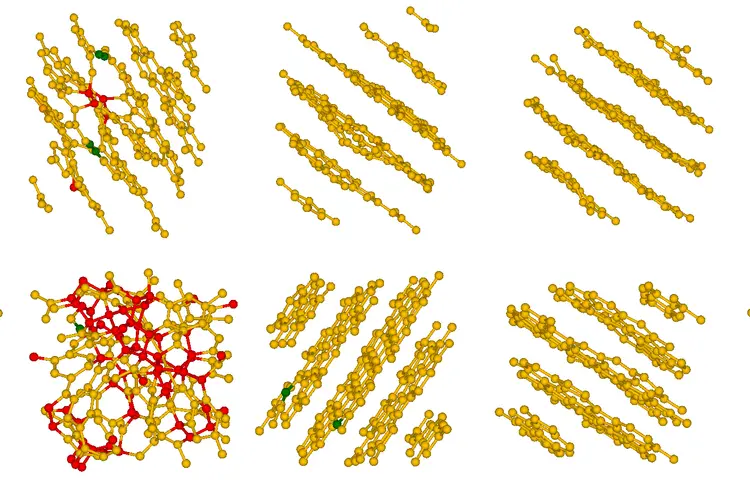
James Barr von Oehsen has been selected as the director of the Pittsburgh Supercomputing Center(opens in new window) (PSC), a joint research center of Carnegie Mellon University and the University of Pittsburgh. Von Oehsen is a leader in the fields of cyberinfrastructure, research computing, advanced networking, data science and information technology.
Founded in 1986, PSC is home to some of the most powerful systems for high performance computing, communications and data storage. PSC makes its systems available to scientists and engineers nationwide at no cost for leading-edge research, providing them with a flexible environment for solving the largest and most challenging problems in science, engineering and digital scholarship.
"As someone who has a strong connection to the Cyberinfrastructure (CI) Ecosystem, I am very familiar with PSC and its many achievements and reputation as a global leader. The thought of being involved with moving PSC to the next level in advancing science and research is extremely exciting and an honor," said von Oehsen.
Von Oehsen joins PSC from New Jersey where he served as the associate vice president for the Office of Advanced Research Computing at Rutgers, The State University of New Jersey, and the co-lead of the New Jersey Alliance for Clinical and Translational Science informatics team. At Rutgers, von Oehsen provided strategic leadership that advanced the university's research and scholarly achievements through next-generation computing, networking and data science, and he developed and implemented a cyberinfrastructure strategy, centralizing research computing across the university.
"Barr has a track record for establishing computing infrastructures that advance scientific research at the university and national level," said Rebecca W. Doerge(opens in new window), Glen de Vries Dean of Carnegie Mellon University's Mellon College of Science. "His leadership will ensure that PSC continues its legacy of high-performance computing well into the future."
His research has been supported by the National Science Foundation (NSF) and National Institutes of Health (NIH) and includes designing and building secure campus-level federated platforms, cloud services, cybersecurity, advanced networking and computing at the edge. He also has worked on education, outreach and workforce development programs aimed at improving the technical expertise that is necessary to support next-generation technologies and user communities.
A founding member of the Ecosystem for Research Networking, von Oehsen brings with him extensive experience working with diverse academic research communities both locally and throughout the nation.
"We are delighted that Barr will bring his expertise and enthusiasm for building large-scale cyberinfrastructure to Pitt and CMU," said Rob A. Rutenbar, senior vice chancellor for research at the University of Pittsburgh.
PSC and its collaborators have attracted more than $708 million in total support to Pennsylvania. Most recently, PSC received $10 million from the NSF for its flagship Bridges-2(opens in new window), a next-generation supercomputer with massive computational capacity, along with an additional $14 million for its operational funding to date.
PSC is at the forefront of applying advanced computing to urgent problems facing the country and the world including the responsible use of artificial intelligence, predicting the path of hurricanes, and better understanding the SARS-CoV-2 virus and the spread of COVID-19.
PSC is supported by several federal agencies, including the NSF and NIH, the Commonwealth of Pennsylvania and private industry. It is a leading partner in the ACCESS network of NSF-funded supercomputers and supercomputing services.
"I look forward to working with the PSC team to increase PSC's portfolio in support of democratization of access to research instruments, data, technical expertise, infrastructure, services and resources with the goal of lowering the barriers to participation for scientists who want to engage in collaborative research across institutional and disciplinary boundaries," said von Oehsen.
Von Oehsen will join PSC on May 1, succeeding Shawn Brown, who served as PSC's director since 2019. Von Oehsen will hold additional appointments on the research faculty of Carnegie Mellon's Department of Electrical and Computer Engineering(opens in new window) and Pitt's Departments of Electrical and Computer Engineering and Biomedical Informatics.
Recent PSC Funding
- $10 million for Bridges-2, a next-generation supercomputer with massive computational capacity and an additional $14 million for its operational funding to date.
- $11.25 million from NSF for Neocortex, a supercomputer that is testing a new generation of computing hardware meant to accelerate artificial intelligence development as well as other data-intensive research.
- $1.8 million from the NIH to fund operations of the D. E. Shaw Research Anton 2 molecular simulation specialty supercomputer at PSC.
- $26 million over the next five years in renewed grants from NIH to PSC and its collaborators at CMU and Pitt to continue providing data infrastructure and leadership to HuBMAP, an international collaboration to map human body at cellular resolution.
- $17.5 million over five years from NIH to PSC, CMU and Pitt to coordinate and provide the computational infrastructure to SenNet, a consortium studying at the molecular level how cells and tissues age as well as the role aging plays�in health and disease.
Recent PSC Research Highlights
- Work with three generations of PSC supercomputers has been recognized with the 2023 AAAI Award for Artificial Intelligence for the Benefit of Humanity, given to CMU professor Tuomas Sandholm for his work with the national UNOS system in improving allocation of donor organs.
- Bridges-2 allowed researchers working with the state of Louisiana to provide real-time predictions of the path of Hurricane Ian in 2022 - information that was used by emergency managers throughout the state and federal levels.
- In February 2023, Neocortex was used by scientists at the National Energy Technology Laboratories, Cerebras Systems and PSC to speed up simulations of fluid flow, critical in dozens of safety, energy and industrial processes, by 470 times.
- Biomedical scientists have used Anton 2 to shed light on problems as different as how fish oil delivers its health benefits, how viruses package their DNA for future infections and how membrane proteins in the brain regulate nerve-cell signals.
- PSC participated in the COVID-19 HPC Consortium, prioritizing its computers at no charge to scientists studying the SARS-CoV-2 virus and the spread of the disease. The work underlies numerous advances in treating and preventing COVID-19.

